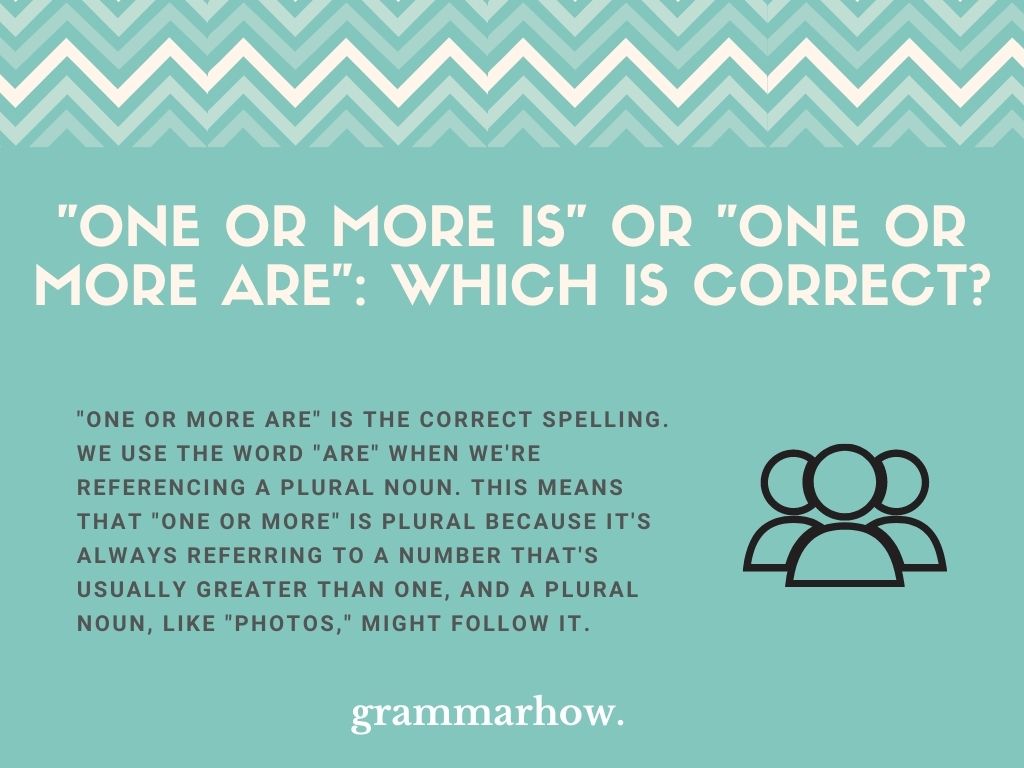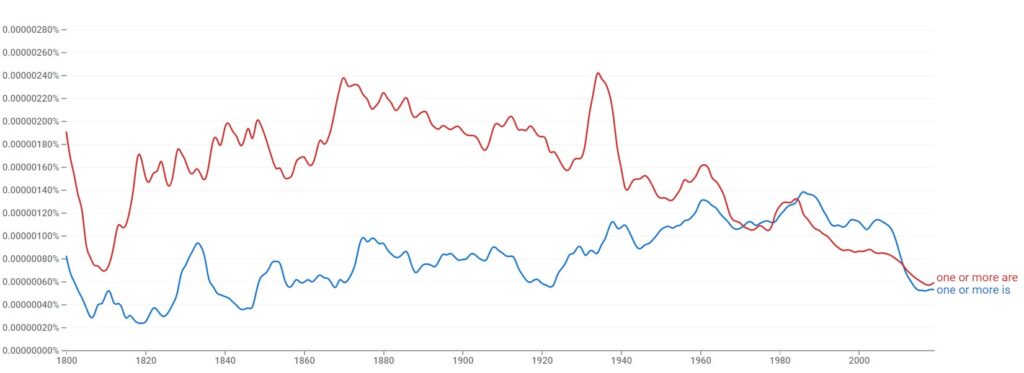Whenever we use the phrase “one or more” to quantify something, we should make sure we’re using “is” or “are” correctly afterward. In this article, we’ll look at which one is correct and which language rules apply to make this the case.
“One Or More Is” Or “One Or More Are”: Which Is Correct?
“One or more are” is the correct spelling. We use the word “are” when we’re referencing a plural noun. This means that “one or more” is plural because it’s always referring to a number that’s usually greater than one, and a plural noun, like “photos,” might follow it.

According to The Cambridge Dictionary, we can look at the definition of “one or two” to show us that “one or more” means “a few.” It’s more general than the phrase “one or two” because the more doesn’t specify a direct number.
If you look at the following graph, you might notice a contradiction in what we’ve said so far. This shows the popularity of the two phrases is about equal. That means that both words get written about the same about.

Over the last 200 years, “one or more is” has been the least popular choice. That’s because it’s seen as incorrect by most writers; however, there is still a case for it, which is mostly in informal writing where the rules are slightly more relaxed.
You’ll notice that it wasn’t until the last 20 years when the two phrases started to overlap in popularity. This is mostly because people prefer the idea that both forms are correct rather than worrying about one over the other. It’s a natural evolution pattern for language.
What Is The Meaning Of “One Or More”?
“One or more” is used to talk about something that is either equal to one or any number greater than that. It’s always used in a context that means more than one but without any real indication of whether one might be the correct number.
Generally, if you say “one or more,” it means you’re unsure what the number you’re talking about is exactly. It can refer to “one,” but you’re usually confident that it should refer to a few more as well.
How To Us “One Or More” In A Sentence
To help us elaborate on our meaning, we thought we’d include some examples. We find that examples are some of the best ways for you to learn about new language rules, so we’ll show you when “one or more” is appropriate to use.
- One or more photos are stained with coffee.
- One or more students are in need of help in the classroom.
- One or more people are likely to lose out on the chance of a lifetime.
- One or more is usually the correct guess.
- One or more is okay if you know what you’re doing with them.
We decided to include variations for “one or more are” and “one or more is” to help explain why there’s such a similarity in usage on the graph above.
While “one or more are” is usually the correct phrase because it uses the plural, some people still write “one or more is.” The easiest way to tell which one makes more sense for most readers is to look at the noun that comes after it.
If you use a plural noun, like “photos,” “students,” or “people,” then “are” should come straight after “one or more.” If you remove the noun, it’s up to you whether you’d rather write “one or more are” or “one or more is” based on the context.
Examples 4 and 5 don’t have nouns in them, so we used “is.”
Synonyms For “One Or More”
Finally, let’s go over some synonyms for saying “one or more.” You might be able to use one of these in place of the phrase. If you are struggling to understand the meaning or whether to use “is” or “are,” these will be a much better option for you.
- A few
We can use “a few” to talk about an indistinct number that we know is typically greater than one.
- Some
“Some” works very much like “a few” to indicate a number that we’re talking about, but we’re not sure on the specifics of it.
